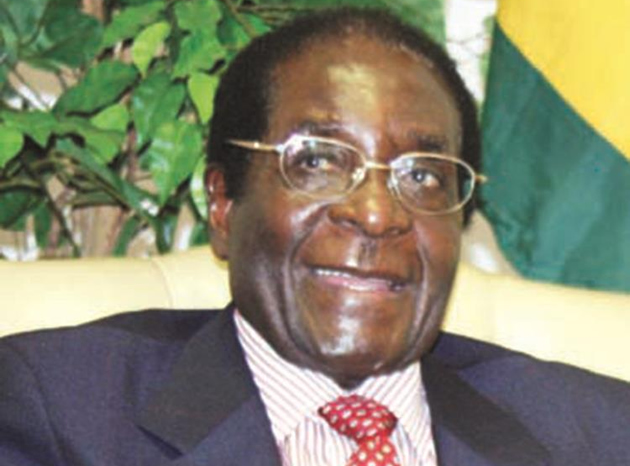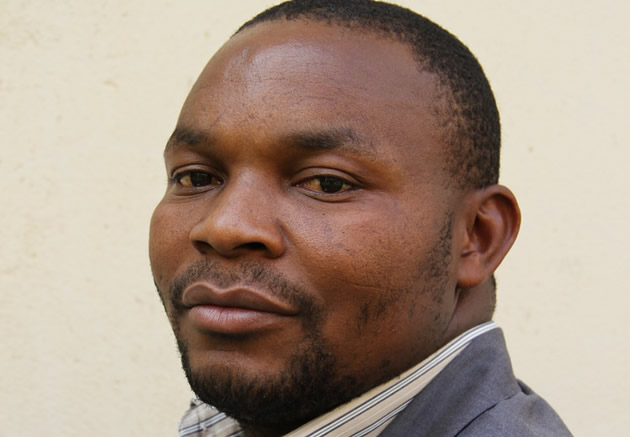President’s vision a blessing to Africa

Bernard Bwoni Correspondent
Leaders like President Mugabe are often carelessly undermined, under-valued and under-appreciated, recklessly misrepresented and misunderstood in their own time and their vision deliberately downplayed.
The reason for this is the status quo’s fear of the unknown.
It is only history that will judge them fairly and then only then are they appreciated and their long-term vision realised and respected, long after they are gone.
The term “visionary” entails original ideas and the idea of a future, about what the future will be or could be like and not some empty proclamations meant only to prop up big business, the bankers and the big multinationals of this world who pull the strings and decide statuses of world economies.
President Mugabe is one such visionary.
Whichever way you decide to look at it, his policies, as unpopular to the Western outsider as they seem today, have in fact positively impacted on the future of the black indigenous people of Zimbabwe.
Zimbabwe, like most African countries, suffered a traumatic history of colonisation, segregation and apartheid and this I utter without fear or favour, for if we fall into the trap of labelling our historical struggles as mere “activism” it will all be consigned to the back pages of history if at all and with it our future.
It is because of this “1950s, 1960s and 1970s activism” that we even have a vision to talk about today!
The reason why President Mugabe intrigues the world, scholar or layman alike, is because he is a shrewd strategist, an uncompromising risk-taker, an excellent communicator with insight, foresight and the grit required, all pre-requisites for a visionary.
Here is a man who risked it all with the land reform programme to economically empower the people of Zimbabwe amid adverse offensives from all angles and now the gamble is slowly but surely paying off and that is what visionaries do.
His passion for the economic empowerment of the previously deprived is the fuel that ignites national engagement and international intrigue with the policies.
President Mugabe has been upfront and pragmatic in creating a positive and inspirational vision for the future of Zimbabwe and the manner he has conveyed his message is what separates him from the chaff and those who brand this tangible vision as activism.
Being a visionary is not about instant gratification, but the long-term, today’s trauma and tribulations’ translating into future fulfilment is what it is all about.
How can it be a vision if it is seeded today and bears fruit tomorrow?
The Japanese, the British, the Germans, the Americans and many other developed nations of today did not start by harvesting and then planting later.
The seed has to be nurtured from planting, germination and all the way through to harvesting.
A self-empowered, self-sustaining, self-assured and self-made majority is a minimum requirement of President Mugabe’s vision and you can argue with that all you want but it is happening even under very disabling micro and macro-economic conditions.
You can only judge a visionary by the outcomes of his vision and to judge it before its time only serves as dishonesty and disconnected ramblings of the purblind.
Land reform in Zimbabwe has to be one of the most rudimentary land redistributive processes ever witnessed the world over and this is a long-term vision, not about words, but deeds.
The land redistribution process has not endeared President Mugabe with some sections of the “international community” as expected, but it was necessary, the right thing to do and he did it amid the unpopular sentiments from those who sought to maintain an unfair status quo. As a Zimbabwean, President Mugabe addressed a profoundly structural problem by establishing a new foundation of political, social and economic values.
Most Zimbabweans and many Africans embraced this positively and those are the hallmarks of visionary leadership.
What President Mugabe has been pushing through is a long-term agenda with long-term future value.
The real resistance comes from the real brokers who actually understand and want to undermine the future impact this vision is going to have.
Through their bland instruments and minions, President Mugabe’s vision is erroneously portrayed as mere rhetoric or madness or 1960s and 1970s mind-set and all sorts of negative connotations meant to undermine and suppress it.
This is a grand idea of improving lives, make things equal, more righteous and fair, a tough ask when you have your own people at your throat for trying to empower them.
At the nucleus of economic activity, that is the home of the vision
Land is important to any country in this world from a social, political and economic point of view.
In Zimbabwe agriculture contributes roughly 20 percent towards the country’s GDP and of that tobacco farming is the country’s biggest revenue generator.
Let me give an example, before the year 2000 tobacco production figures were in excess of the 200 million kilograms mark.
The majority of that production was from large-scale commercial farms that were predominantly owned by a handful of mostly white commercial farmers.
The Fast Track Land Reform started from around 2000 and following that in the 2008-2009 season tobacco figures fell drastically to below the 50 million kilogrammes mark.
Some were quick to label the land reform programme a dismal failure and fast-forward to the 2014 season tobacco figures were over the 200 million kilogrammes mark again and revenue generated in excess of US$600 million.
Today in excess of 60 000 indigenous black farmers have had their chance and are participating in the lucrative tobacco sector whereas before these profits would silently have been shared among less than 2000 white large-scale farmers.
This is President Mugabe’s vision of collective gain as opposed to minority acquisition and it is quite interesting to note that the waiting list for land in Zimbabwe is well over 500 000 people. That tells you something about the vision.
A just cause, not excuses
A country like Zimbabwe has a just cause just like Africa has a cause, and trying to downplay colonialism and slavery to enlist favours from the architects of the deed itself is not going to address the assorted and multiplex problems but will merely mask them for future generations to repeatedly try and deal with.
Any right-thinking person, lay person or scholar, should know better that President Mugabe, Zimbabwe or Africa make no excuses, we all have shortcomings but equating colonialism to excuses and accusing those talking about it and about redressing inequalities as being stuck in a time warp is just downright malleable and low-down.









Comments